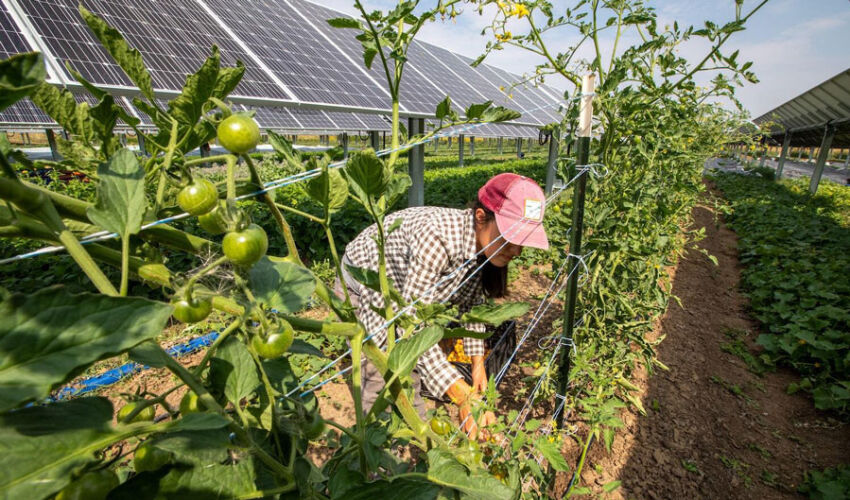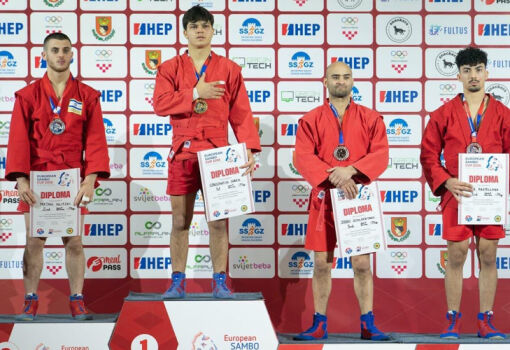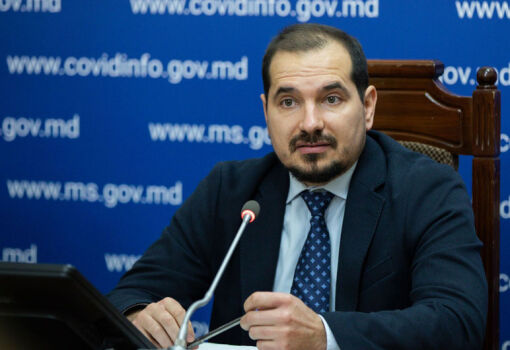
Greenhouse, a startup from Dubăsarii Vechi, clearly demonstrates how innovation can become an airbag for agriculture. The company has developed an innovative system to maintain the right temperature in greenhouses using only solar energy and heat pumps. This technology completely eliminates dependence on fossil fuels, thereby helping to reduce carbon emissions and increase the sustainability of agricultural production.
The system created by Green-house is automated, allowing farmers to save not only energy and money, but also precious time. This innovative equipment enables farmers to continue their operations even during the cold season without interrupting the production cycle.
“Our idea arose from the need to compensate for the high energy losses in greenhouses used during the winter. Instead of using classical methods based on fossil fuels, we implemented a hybrid RES solution: photovoltaic panels that generate electricity throughout the year and heat pumps. The energy generated is used in winter to heat greenhouses, provide a stable environment for crops and reduce production costs,” explained Sergey Shvidchenko, Greenhouse employee.
The solution offered by Green-house is more than just a heating system – it is a technology that supports the development of agricultural communities. Farmers can work all year round, including during cold weather, without stopping production. At the same time, they provide employment for local people who do not have to go abroad to work, at all or during the winter season.
“One of the main advantages of this system is cost stability. The energy generated by the PV panels allows us to eliminate the price fluctuations associated with imported fossil fuels. The automation of the process also increases production efficiency and farmers can predict long-term income,” explained Shvidchenko.
During the technology development phase, Greenhouse received support from the Global Clean Technology Innovation Program (GCIP Moldova), which is implemented in Moldova by the National Center for Sustainable Energy (CNED). It aims to promote and support innovative clean technologies, foster entrepreneurship and protect the environment.
As a result, the startup was awarded by GCIP Moldova at the Moldova Eco Energetica 2024 gala. The company was the beneficiary of a $10,000 grant to support the implementation and development of the technology nationwide.
And the Moldovan Ministry of Agriculture told about farmer Maxim Djanov from Comrat, who modernized his strawberry farm with a loan and grant from the IFAD project.
In September 2024, Maxim received a loan of 1.6 million lei under the project “Capacity Building for Rural Transformation” (IFAD VIII). With these funds, he built a 0.5-hectare greenhouse equipped with photovoltaic panels, equipped with an automatic temperature control system controlled through a mobile application. The system allows remote and real-time monitoring and regulation of berry growing conditions.
The production volume remained the same – 20 tons of strawberries per year, but the quality and speed of harvesting increased. In addition, the farmer started growing cherries, which helped diversify production and utilize resources more efficiently.
Maxim Dianov also received another IFAD grant of 136 thousand lei. With this money, he installed a rainwater harvesting system for irrigation, as well as solar panels to power the cold room, thus reducing costs and energy consumption.
Farmer Sergiu Bivol from Cimislia district in 2021, among 12 other beneficiaries, received financial support under the Livada Moldovei project supported by the European Union through the European Investment Bank. But with this money he bought photopanels to power a refrigerator (4 chambers of 300 tons each). “When the bills came, compared to last year, noted a 50% decrease. In 3 years, I have recovered the investment. And I even sell the surplus,” said Sergiu Bivol.
And there are dozens of similar examples in Moldova.

